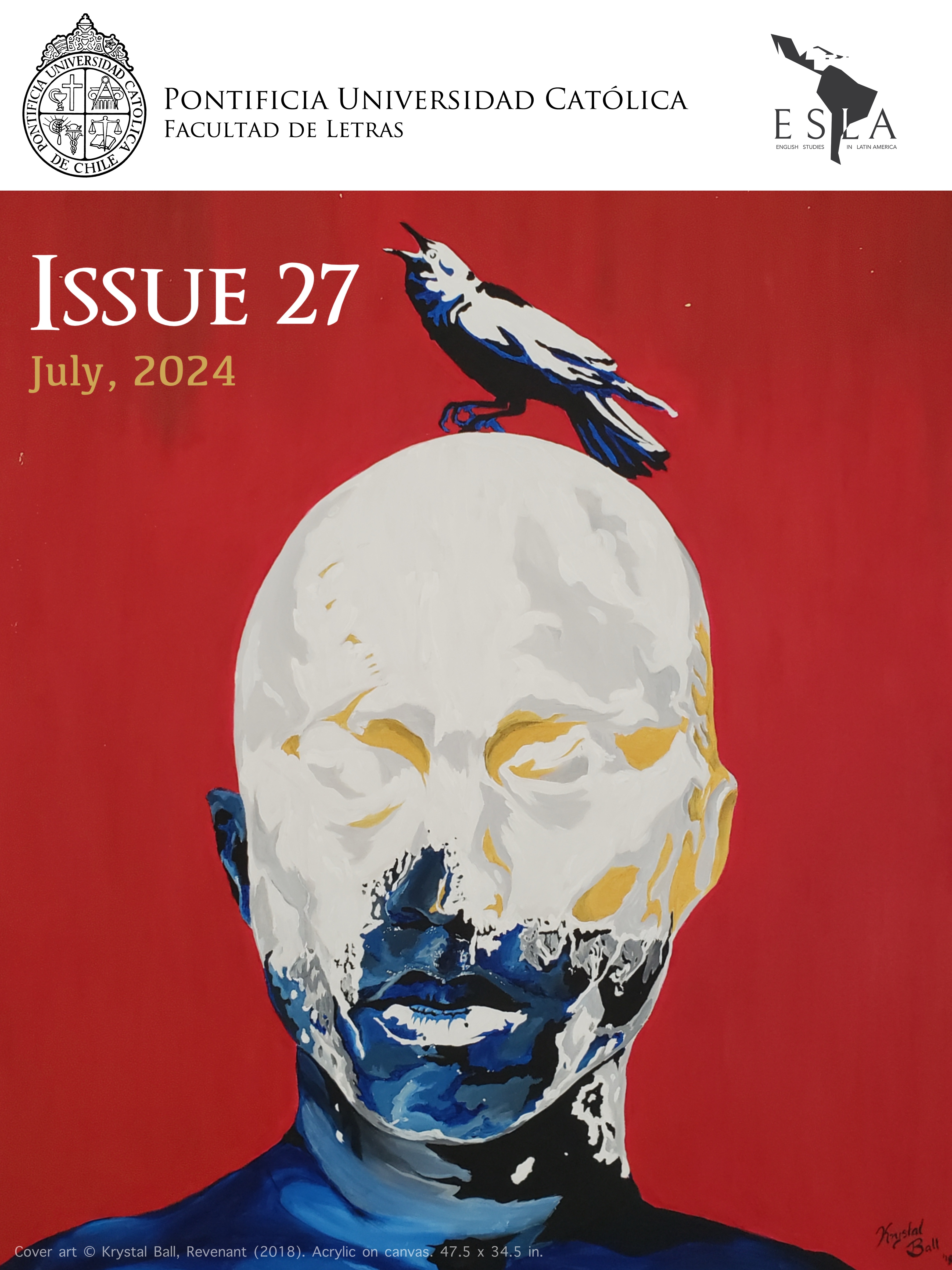Lyrical Perspectives on Lady Brion’s I Talk Black and Simone Lagrand’s Nous sommes des rivières
DOI:
https://doi.org/10.7764/ESLA.83312Keywords:
Maryland, Martinique, Lyrical, Lady Bryon, Simone Lagrand.Abstract
The comparative study that I propose through the present article is not only a structured overview – of I Talk Black, written and spoken by the artist Lady Brion, from Maryland, in 2018, and Nous sommes des rivières, written and spoken by the artist Simone Lagrand, from Martinique, in 2014 – but a clear statement on the lyrical situation in the Americas. This paper comprehends various insights on an African-American woman’s musicality and a Franco-Creole-Caribbean woman’s orality. Taken together, these Black women’s pieces of work call for demonstrative freedom and compelling peace. If Brion says that, “This slang is semantic resistance” (I Talk) and Lagrand affirms that, “Il est dit que toutes les rivières descendent à la mer” (Nous sommes) therefore, where do their narratives meet each other? What’s the link between Brion’s “cornbread accent” and Lagrand’s “voyage vers nous-même”? To what extent do the selected authors’ prevailing rhetorical strategies echo one another? I will address how English, French and Creole languages evoke the creative process that nourishes the artists that I have met in person and interviewed in the context of my Ph.D. research on oral literatures such as Slam Poetry and Spoken Word in the Americas.
Downloads
Downloads
Published
How to Cite
Issue
Section
License
Copyright (c) 2024 English Studies in Latin America: A Journal of Cultural and Literary Criticism

This work is licensed under a Creative Commons Attribution-NonCommercial-NoDerivatives 4.0 International License.


